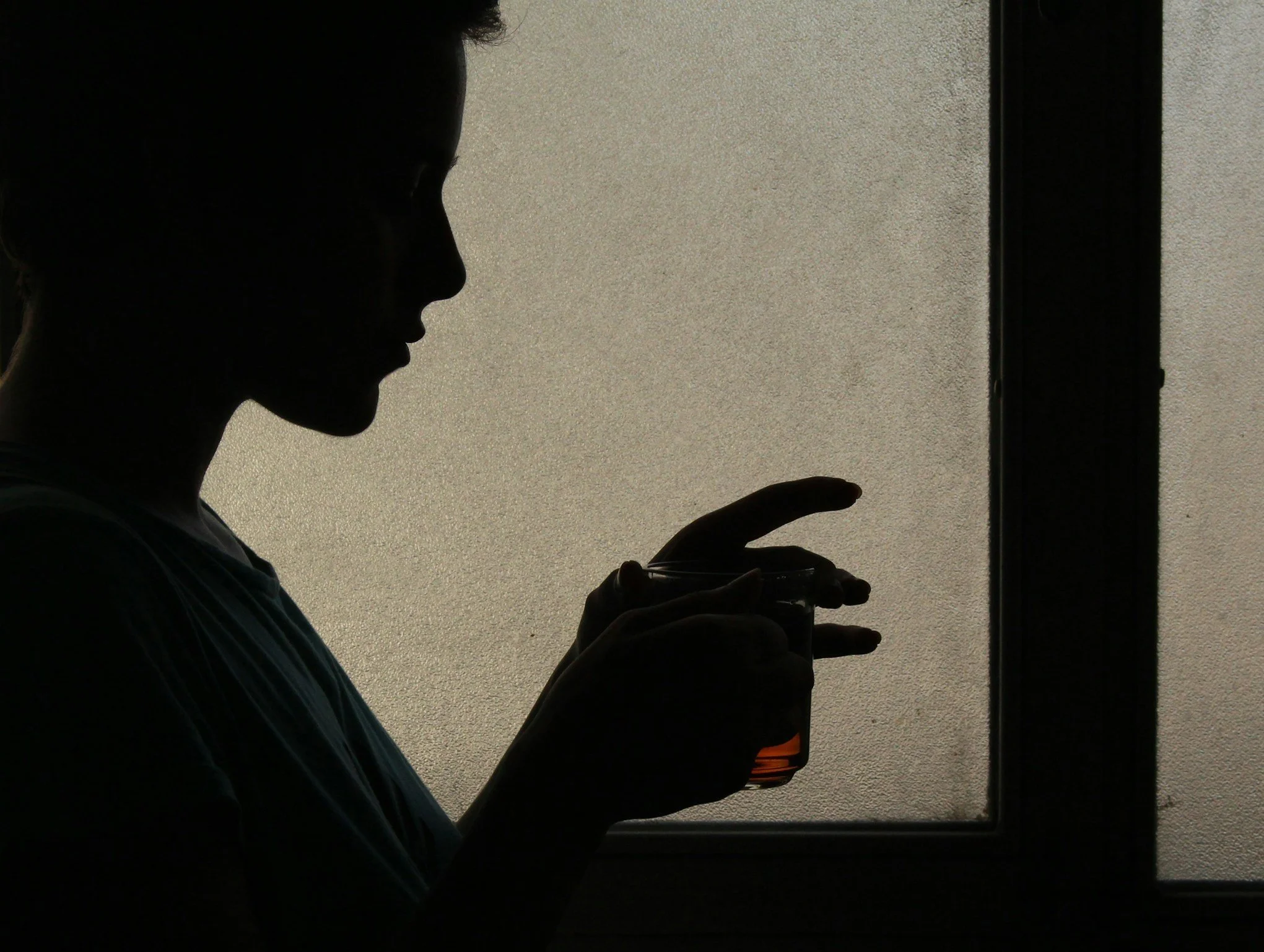Deidre
“Thomas and I hadn’t known where to begin when Deidre splintered into a slow spill she could neither contain nor quit.”
“Deidre” began in a fiction-writing class at the VMFA Studio School. In my first attempt, three friends driving in a blizzard slide off the road into a snowbank. As they await a tow-truck, the loss of Deidre is revealed. Thomas—who had a romantic past with Deidre—cannot bear his guilt, grief and helplessness runs into a snowy field, shouting his anguish into the dark.
Meh.
I couldn’t decide if they were going to the wake or leaving it. Then I tried writing the three of them meeting at an airport, stopping at a liquor store on the way to Deidre’s parents’ house. Here I found the idea of showing grief’s contrasts with sensory details. I made the liquor store harshly white, had poor Thomas slip on the icy sidewalk, dropping and breaking liquor bottles, disrupting the dark, quiet of a snowy night.
But this was worse.
In my third try, we plunge right into the family’s kitchen, into the middle of Deidre’s wake. Thomas drops a whiskey bottle; green glass shatters onto the white tiled floor. This causes a moment of silence in what could be a lively holiday party. The narrator (I cut the other friend) hopes that someone will clean up the mess. But she needs to “do something” and sweeps broken glass and spilled whiskey. Thomas seems paralyzed and can only follow directions. Deidre’s sister focuses on the missing mop. Deidre’s father opens Jameson bottles in effort to keep the party going. His offhand comment reveals that the party is his daughter’s wake. The family dog, Gizmo, could almost be a moment of lightness as he laps whiskey from the floor, but Deidre’s mother pulls him outside into the snow storm where she breaks down.
The narrator atones for not stopping Deidre’s descent into addiction, mental illness or perhaps both by sweeping broken glass and washing the family’s crystal in water so hot it scalds her hands. But her cleaning and scrubbing are too late. Thomas can’t act, can barely speak and “Silent Night” on the tea towel hints at his feelings of guilt for his silence.
Not the most uplifting story, is it? It didn’t answer any questions for me, but ended up as a snapshot of the contrasts, the contradictions of grief.
***
I’m moments, seconds, inches, centimeters away from sending query letters to agents for my novel, Degrees of Forgiving. It’s impossible to know when the letter—which is essentially a sales pitch and believe me when I tell you how uncomfortable that makes me—is done. I could forever tweak the “comparable titles,” how much to include about the plot or in the bio. It’s the same for editing a short story and even more so for a novel; it could always be better. I’ve never once felt a concrete “it’s done” moment. I’ve been advised to pay attention for the “I’m done.” It’s slippery and elusive and must be out there somewhere.
Thanks so much for coming along.
Heather

